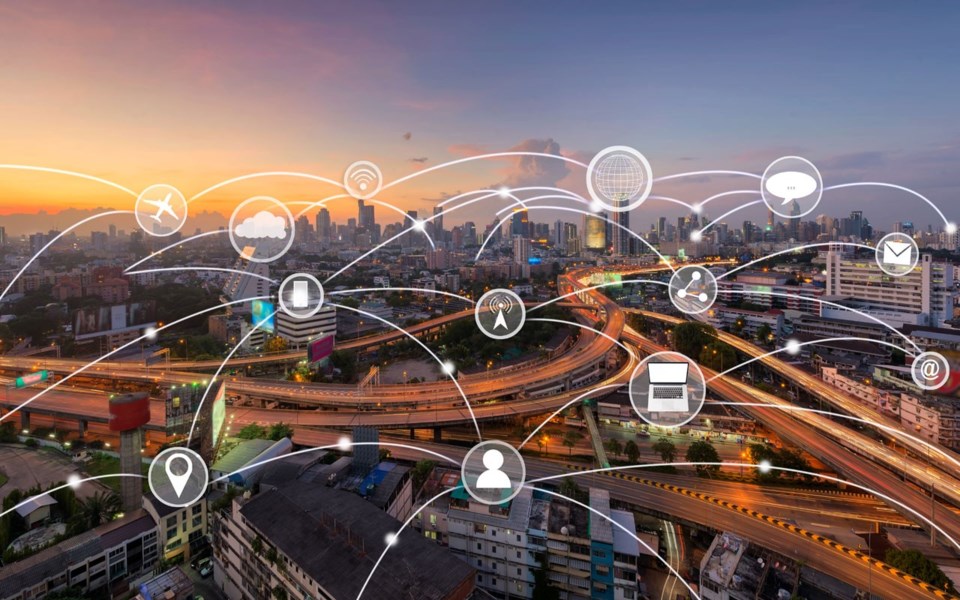Revelations last week that controversial, Victoria-based tech company AggregateIQ (AIQ) had access to the information of tens of thousands of B.C. voters should be cause for concern—but shouldn't come as a surprise.
The big data disaster is in full swing, and we're all along for the ride.
In the case of AIQ, the company was hired by both the BC Green Party and four BC Liberals ahead of the 2017 election (the Greens say the relationship ended early, and AIQ has informed them the data it had was deleted; a BC Liberal communications manager told CBC News the company provided digital marketing services "similar to those provided by many other Canadian social media vendors").
AIQ has been in the headlines lately for its ties to Cambridge Analytica—the now-notorious company linked to the election of Donald Trump and Brexit, accused of improperly using the information of 50 million Facebook users.
For its part, AIQ has said previously that it "works in full compliance within all legal and regulatory requirements in all jurisdictions where it operates," and that it "has never knowingly been involved in any illegal activity."
But therein lies the problem: in the age of information, hundreds of millions of people have willingly signed away their right to privacy in the name of convenience.
For many, it doesn't seem like a big deal—"Why does it matter if advertisers know I like Lady Gaga?"—but the full implications are laid out in a piece published by Vice's Motherboard blog shortly after Trump's inauguration ("The Data That Turned the World Upside Down," Jan. 28, 2017).
It's a long and sobering read, but well worth the time.
In short, taken together, all of those likes, shares and clicks form a detailed, psychological picture (with access to 300 "likes," it's possible to better evaluate a person than even their own partner can, the article states).
The information can then be used to pinpoint specific groups of people, or even individuals, with targeted messaging, appeals to emotion and fake news.
Big data can essentially be used to control and manipulate entire populations—if we let it.
But it's hard to say how we can best manage our new reality. The #DeleteFacebook movement is too much for some to bear, and a drop in the bucket besides—your smartphone is essentially a mobile psychological assessment you are constantly filling out, and as long as you're connected to the internet, you're likely creating a data set.
The only way to avoid the big data web is to wipe the slate clean and move off the grid—an alluring prospect sadly not available to most of us.
So what's the answer? Better education through technology and media literacy classes, or more robust propaganda history lessons?
Tighter regulations on the companies who suddenly wield so much societal power? More oversight to ensure these "tools" are used transparently or not at all?
Will any amount of oversight be enough?
Certainly some of the weight should fall on the shoulders of the manufacturers of these tools—the Zuckerburgs of the world who feel no shame in exploiting people for profit ("they trust me—dumb fucks," Zuckerburg once said of his users, in the early days of Facebook).
But in the end, it comes down to personal responsibility. If you really want to avoid the web of big data, you need to be aware of what's being collected on you and take steps to protect yourself.
You can download your Facebook data as a zip doc—pictures, statuses, which advertisers have your information—almost everything (some Android users have found their entire call histories, and the phone numbers of every contact in their device—all freely available to Facebook).
Similar downloads are available through Google and other platforms.
Browsing habits can be masked using VPN services.
And if you think all of this is relegated to national elections, think again—a recent article in the Vancouver Sun talks about how Metro Vancouver chair Greg Moore has researched online interference in global elections, and says it's really not that hard to implement on a local scale.
Fake Facebook profiles using masked IP addresses can be used to sway public discourse and spread lies about local candidates; pre-paid credit cards can be used to buy online advertising without a trace.
With municipal elections set to take place this October, now is a great time to learn the new ins and outs of the information age—and better prepare ourselves to choose fact over fiction.




